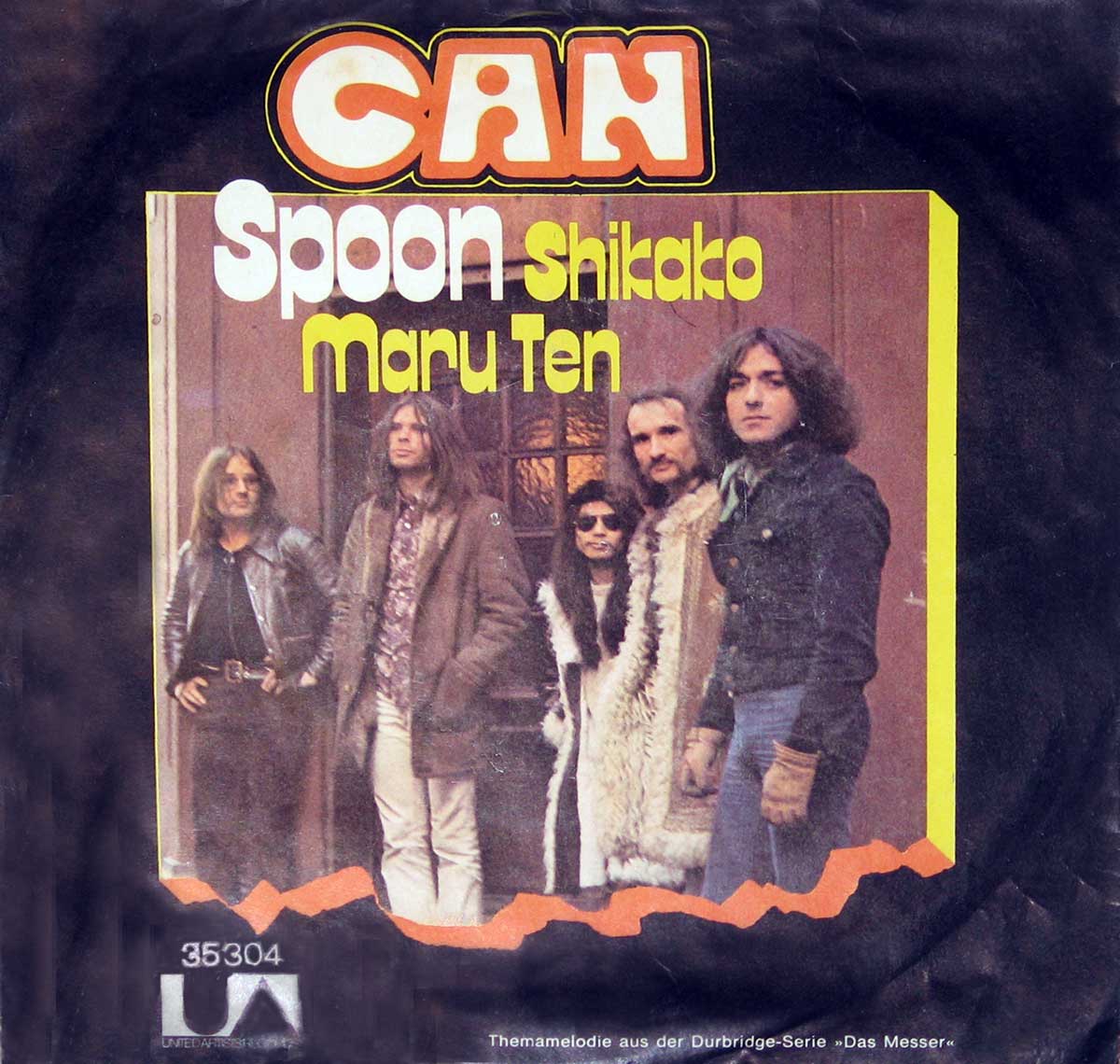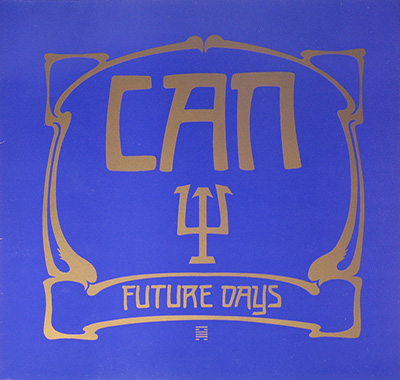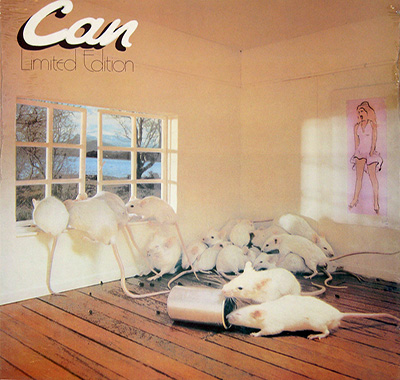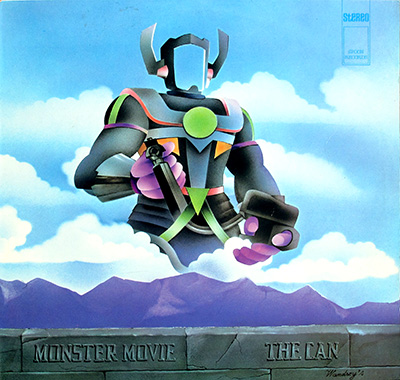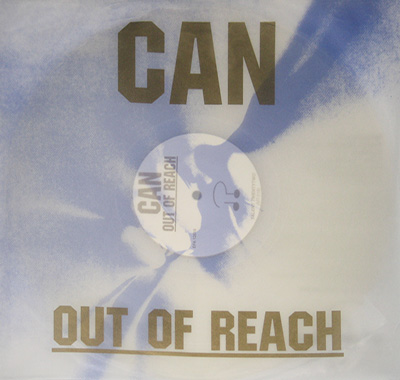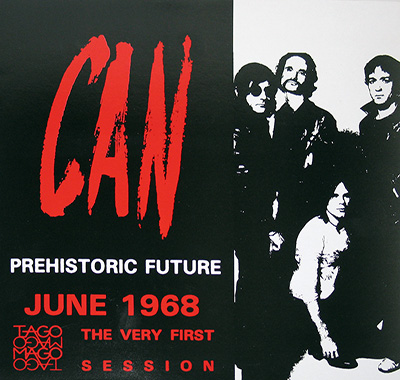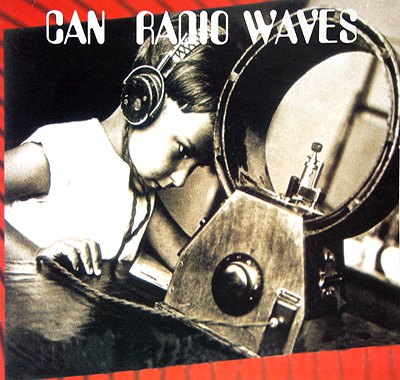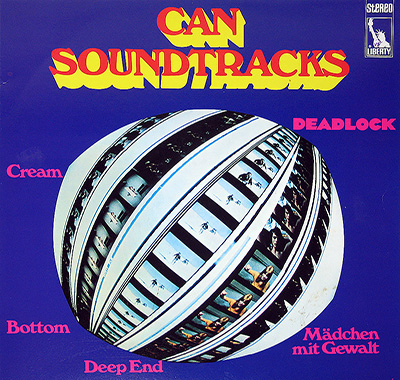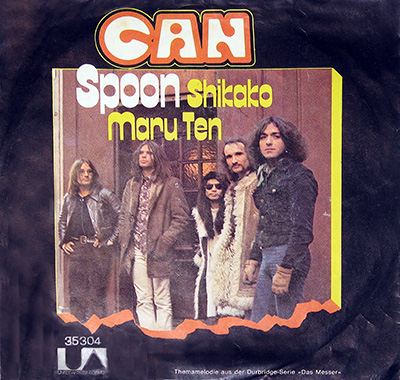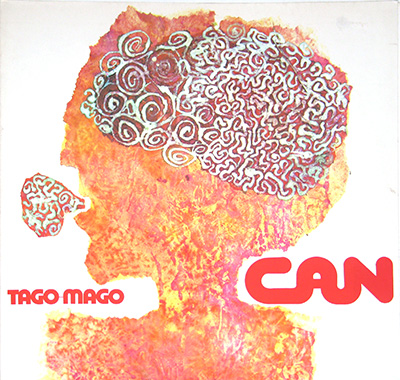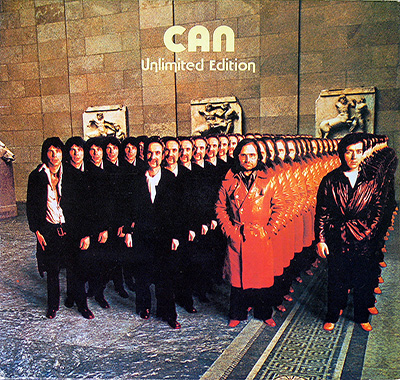"Spoon b/w Shikako Maru Ten" Album Description:
The release of the 7" single vinyl "Spoon b/w Shikako Maru Ten" by CAN is a notable piece in the history of music, specifically within the time period it emerged. The single, with its distinctive picture sleeve, reflects the production aesthetics of its era, capturing the essence of the band's creative prowess and the broader musical landscape.
This vinyl record, released during the heyday of the 7" format, aligns with the period when vinyl singles were a primary medium for the distribution of music. The significance of the format is deeply rooted in the mid to late 20th century, where vinyl records dominated the music industry. This was an era marked by the analog warmth and rich sound that vinyl offered, a characteristic that enthusiasts still appreciate today.
CAN, a pioneering German experimental rock band formed in the late 1960s, was known for pushing the boundaries of conventional rock music. The release of "Spoon b/w Shikako Maru Ten" showcases the band's innovative approach to sound and production. The use of unconventional structures, layered instrumentation, and experimental techniques reflects the avant-garde spirit of the time.
The picture sleeve accompanying the single is a visual representation of the artistic and design trends prevalent during that era. The cover art, typography, and overall aesthetic are likely to resonate with the graphic design styles of the time, contributing to the overall cultural milieu.
Production-wise, the recording technology and studio equipment available during the release of this single played a crucial role in shaping its sonic character. Analog recording equipment, tape machines, and the mastering process of that time all influenced the final sound of the record. The imperfections inherent in analog recording, such as subtle hiss and warmth, contribute to the charm of this vintage release.
Furthermore, the cultural and social context of the period plays a significant role in understanding the production choices of this single. The late 1960s and early 1970s were a time of cultural upheaval and experimentation, with music acting as a powerful medium for expression and exploration.
